Concrete countertops have become increasingly popular in kitchen design due to their versatility, durability, and unique aesthetic appeal. Here’s a comprehensive guide to concrete countertops for kitchens:
Customization Options: One of the key advantages of concrete countertops is the ability to customize them to fit your kitchen’s specific design aesthetic. Concrete can be poured into molds of virtually any shape and size, allowing for seamless integration with your kitchen layout and cabinetry.
Color and Texture: Concrete countertops offer a wide range of color and texture options, making them highly versatile in terms of design. Pigments can be added to the concrete mix to achieve custom colors, while various finishing techniques can create textures ranging from smooth and polished to rough and industrial.
Seamless Integration: Unlike traditional countertop materials such as granite or marble, concrete countertops can be poured in place, eliminating the need for seams and joints. This creates a seamless, uninterrupted surface that is both aesthetically pleasing and easy to clean.
Durability: Concrete countertops are known for their durability and longevity when properly sealed and maintained. They are resistant to scratches, heat, and stains, making them an ideal choice for high-traffic kitchen areas.
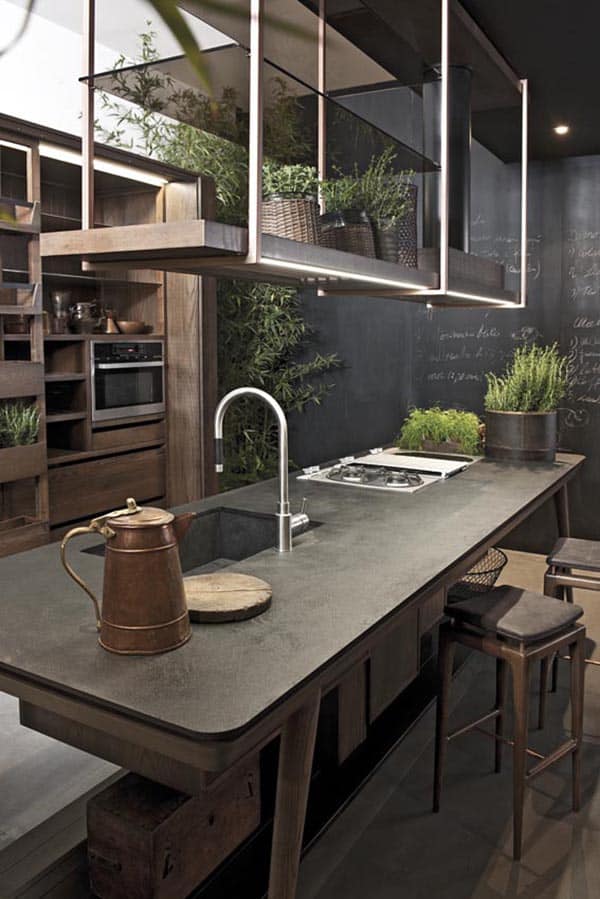
Heat Resistance: Concrete countertops have excellent heat resistance, allowing you to place hot pots and pans directly on the surface without fear of damage. This makes them a practical choice for busy home cooks who frequently use their kitchen for cooking and entertaining.
Maintenance: While concrete countertops are relatively low maintenance compared to other materials, they do require periodic resealing to maintain their appearance and performance. Additionally, spills should be cleaned up promptly to prevent staining, especially on lighter-colored countertops.
Cost: The cost of concrete countertops can vary depending on factors such as size, thickness, and complexity of design. While they may be more expensive than laminate or tile countertops, they are generally less expensive than natural stone options like granite or marble.
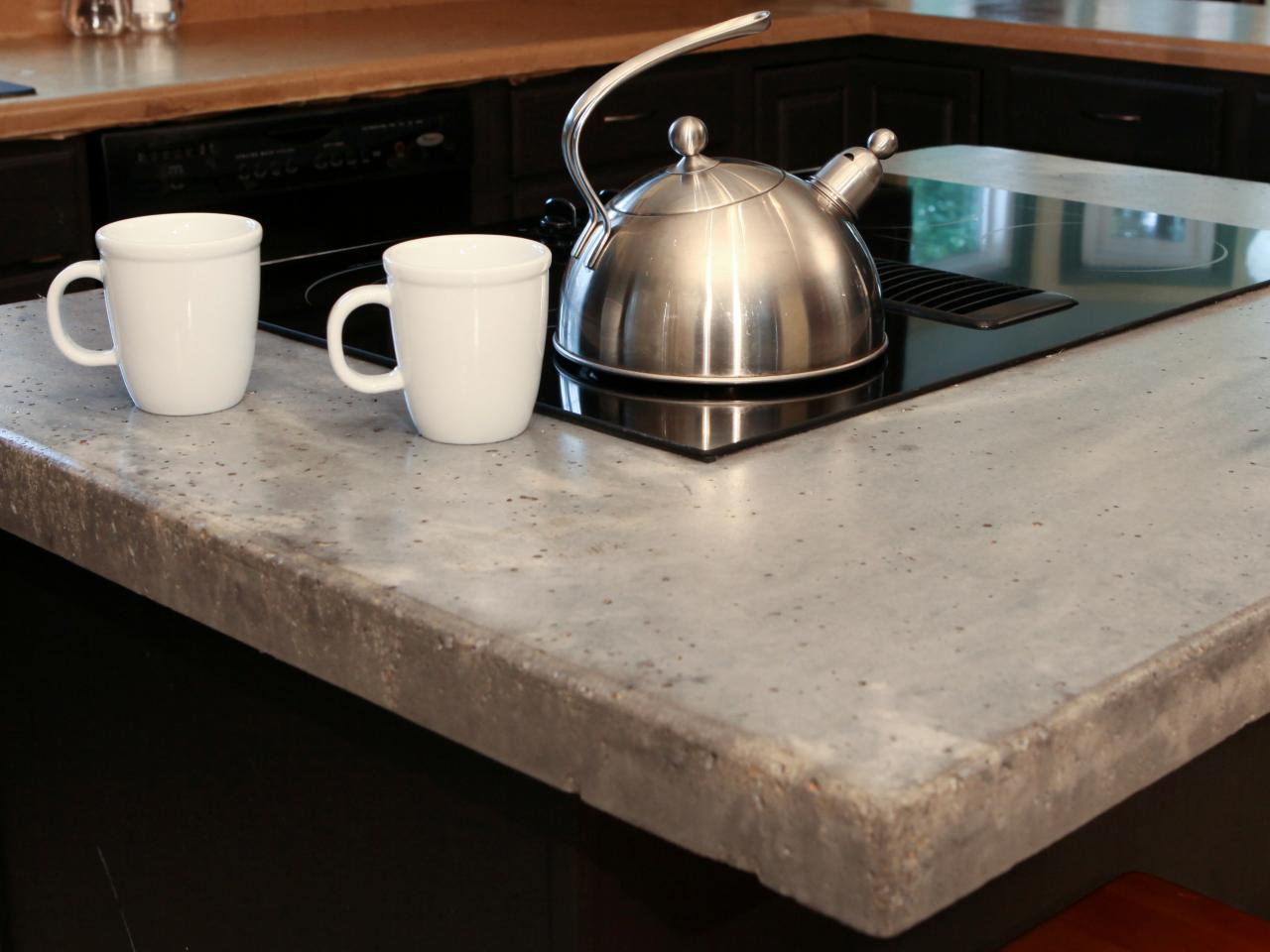
Installation: Installing concrete countertops typically requires professional expertise due to the specialized skills and equipment involved. The process involves creating custom molds, pouring the concrete, and finishing the surface to achieve the desired look.
Curing Time: Concrete countertops require sufficient curing time to achieve optimal strength and durability. Depending on the specific mix used and environmental conditions, this can range from several days to several weeks. It’s important to allow adequate time for curing before using the countertops.
Design Flexibility: Concrete countertops offer unparalleled design flexibility, allowing you to incorporate custom features such as integral sinks, drainboards, and decorative elements. This makes them an excellent choice for homeowners looking to create a one-of-a-kind kitchen space.
Environmental Impact: Concrete countertops are considered a sustainable choice for kitchen design due to their longevity and ability to be recycled or repurposed at the end of their lifespan. Additionally, using locally sourced materials and environmentally friendly sealants can further reduce their environmental impact.
Resealing Schedule: To maintain the appearance and performance of concrete countertops, it’s recommended to reseal them every 1-3 years, depending on usage and the type of sealer used. This helps protect the surface from stains, scratches, and other damage while preserving its natural beauty.

Weight Considerations: Concrete countertops are heavier than many other countertop materials, so it’s important to ensure that your kitchen cabinets and supports are properly reinforced to accommodate the added weight. Consult with a professional installer to assess the structural requirements for your specific kitchen layout.
Edge Profiles: Concrete countertops can be customized with a variety of edge profiles to suit your design preferences. Options range from simple straight edges to more decorative profiles such as bullnose, beveled, or ogee.
Long-Term Investment: While concrete countertops may require a higher upfront investment compared to some other materials, they offer long-term value and durability that can withstand the rigors of daily kitchen use. With proper care and maintenance, concrete countertops can last for decades, making them a wise investment for your home.
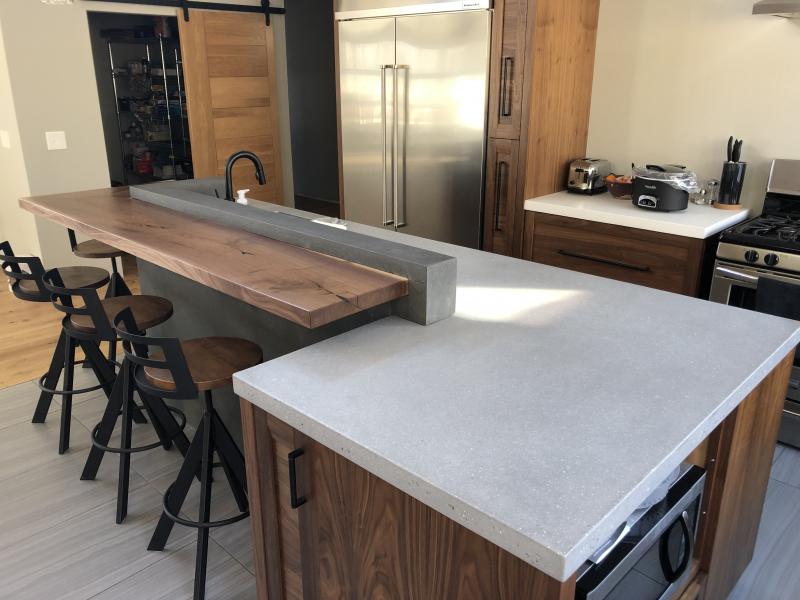
Are concrete countertops prone to cracking?
While concrete countertops are durable, they can develop hairline cracks over time due to factors such as the settling of the foundation or temperature fluctuations. Proper installation techniques, reinforcement, and regular maintenance can help minimize the risk of cracking.
Can I install concrete countertops over the existing countertops?
In some cases, it may be possible to install concrete countertops directly over existing countertops, depending on the condition of the existing surface and the specific installation method used. However, it’s important to consult with a professional installer to assess the feasibility of this approach.
How do I clean and maintain concrete countertops?
To clean concrete countertops, use a mild soap and water solution or a pH-neutral cleaner and avoid harsh abrasive cleaners that can damage the sealant. Periodically reseal the countertops as needed to maintain their appearance and protect against stains and moisture.
Can I customize the color and texture of concrete countertops?
Yes, concrete countertops offer extensive customization options in terms of color, texture, and finish. Pigments can be added to the concrete mix to achieve custom colors, while various finishing techniques can create textures ranging from smooth and polished to rough and textured.
Do concrete countertops require special support or reinforcement?
Yes, concrete countertops are heavier than many other countertop materials, so it’s important to ensure that your kitchen cabinets and supports are properly reinforced to accommodate the added weight. Consult with a professional installer to assess the structural requirements for your specific kitchen layout.

A Guide to Concrete Kitchen Countertops: Remodeling 101

Amazing and stylish kitchens with concrete countertops

Concrete Countertops – Pros, Cons, DIY u0026 Care – Concrete Network
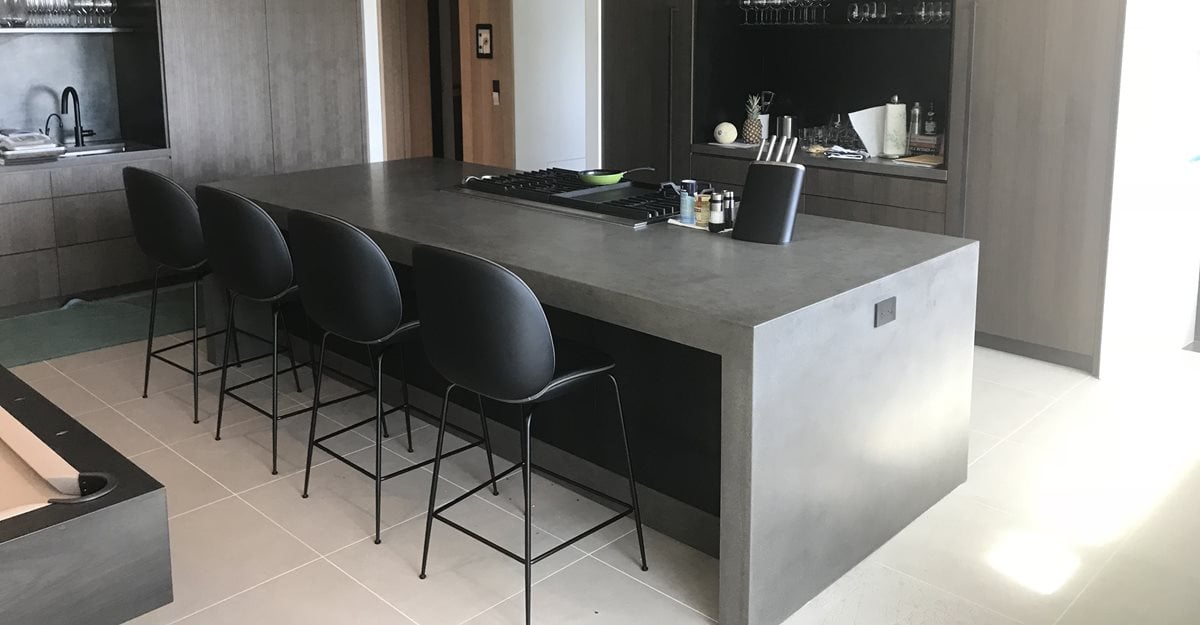
All You Need to Know About Concrete Countertops

Concrete Countertops – Pros, Cons, and Cost of Concrete Countertops
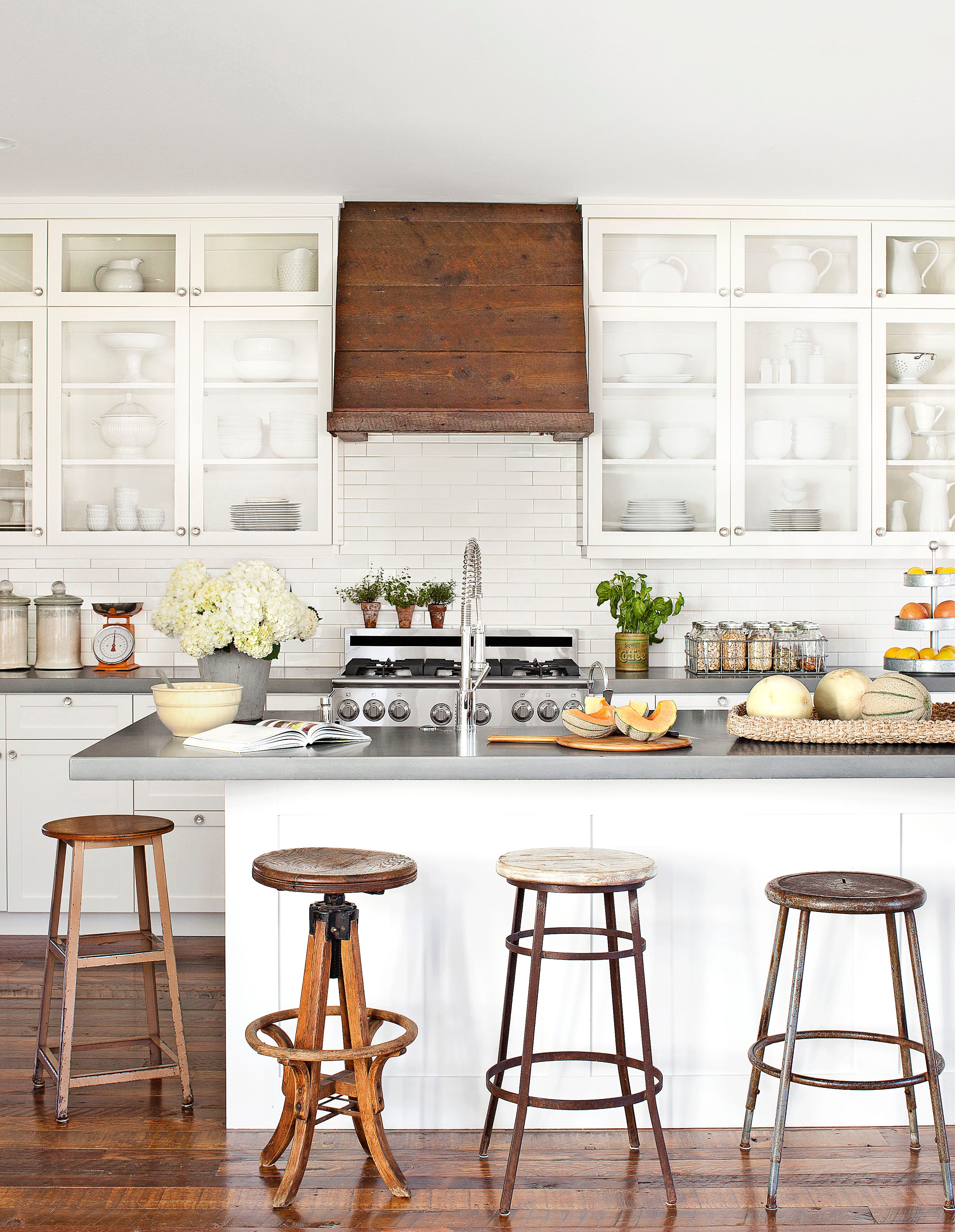
Related articles:
- Marble Look Concrete Countertops
- Light Grey Concrete Countertops
- Concrete Countertop Design Ideas
- Light Colored Concrete Countertops
- Epoxy On Concrete Countertop
- Concrete Countertops Designs
- Concrete Countertops That Look Like Wood
- White Concrete Countertops
- Concrete Countertop Drainboard
- White Painted Concrete Countertops